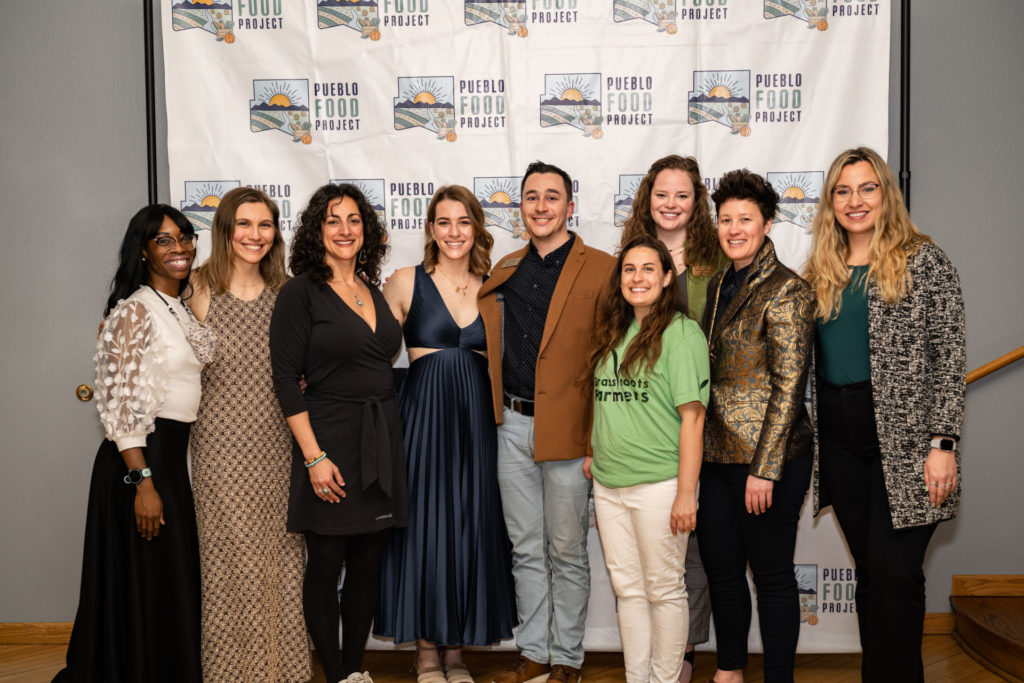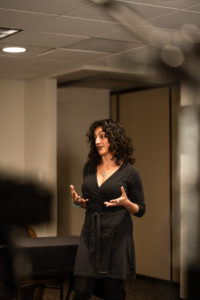
Pueblo resident Amber Golshani has been making homemade “fire cider” for family and friends for more than a decade, and during the COVID-19 pandemic, her natural remedy was even more in demand.
That’s when she realized she could turn her hobby into a business, but she knew a good idea alone couldn’t guarantee success. So, in January 2022 she signed up for the first cohort of the Pueblo Food Project Entrepreneurship Development Program, an Economic Development Administration and multi-organization-funded collaboration linking southern Colorado business owners with experts in everything from marketing to finance and bookkeeping to food safety.
Colorado State University’s Institute for Entrepreneurship, College of Business, Regional Economic Development Institute and local partners have been integral in launching this program.
“As I’m growing my business and I have a question, I now know who to ask,” Golshani said. “It’s the best feeling in the world to have someone who believes in you and supports you and is in your corner to help.”
Connecting businesses with the tools to succeed
Sarah Rhodes, an entrepreneurship business resident at CSU, is responsible for assisting with the EDA grant, which in addition to covering economic opportunities in Pueblo, also supports the San Luis Valley and Western Slope.
It’s a project close to Rhodes’ heart: She grew up in an agricultural family in Pueblo and is currently part of the inaugural cohort of the agribusiness and food innovation management master’s program at CSU.

“There is a feeling and passion in Pueblo for food and supporting local food systems, and that has helped this really take off,” she said.
“It’s been such an effective partnership – made even better by the fact that Sarah is a local and knows what makes Pueblo vibrant and unique,” said Megan Moore, the program manager for the Pueblo Food Project.
Moore, Rhodes and Mark Madic, a CSU alumnus and the manager of Southern Colorado Innovation, are all Pueblo natives who have helped develop courses to help local business owners hone their entrepreneurial mindsets and find the tools they need to succeed. Their networks of support, mentors and resources have turned this local project into a statewide effort.
Jolene Collins, the owner of Pueblo-based Jojo’s Sriracha, said it’s been gratifying to see fellow business owners in her community benefit from these resources.
“I kept seeing people with great ideas that wanted to turn them into successful ventures but failed because they couldn’t navigate the business side of things and they weren’t getting help,” she said. “There’s so much synergy and collaboration and just this amazing spirit of everyone working together.”
Some of that support has come from Dawn Thilmany, an agricultural economist and professor in the CSU College of Agricultural Sciences. In addition to serving as an adviser for the program and leading efforts on the EDA grant, she’s also conducted marketing research and broader analyses for some of the entrepreneurs – including Golshani, who used Thilmany’s findings in a presentation that ultimately won the Sun Soil Water Ag Summit Pitch Competition.
“Part of the reason I won is because I had such great data – and the fact that it came from CSU added a lot of validity to what I was saying,” she said.
Golshani’s business – Dr. Amber’s Fire Cider – has continued to grow year after year, and Rhodes and Thilmany say it’s just one of many success stories from the Pueblo Food Project Entrepreneurship Development Program, which has also supported the launch of the city’s first food hall and is gearing up for third cohort of business owners next year.
“We’re taking our lessons out of the classroom and making things available for a wider set of learners because not everyone is in the right stage of life to get a four-year degree,” Thilmany said. “We’re making our entire state the classroom.”